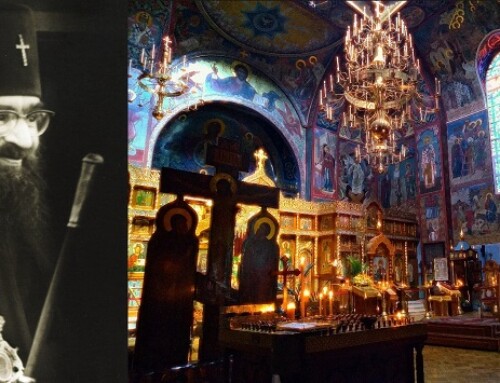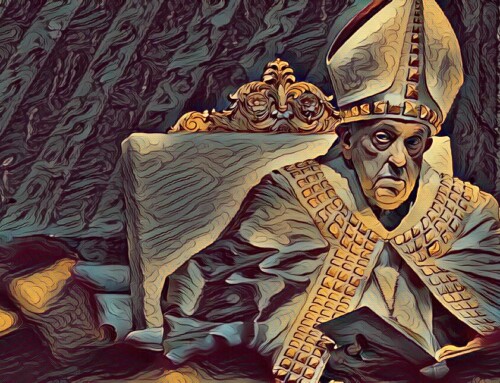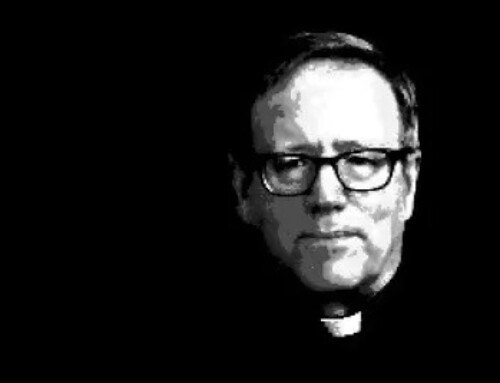As I have often observed, and studies have continually substantiated, in families where there is dysfunction between father and son the abused boy can often swerve into different unhealthy directions: towards alcoholism (see below), homosexuality, or an inability to maintain lasting relationships with women; most significantly, one particular study found that not only does, of course, sexual and physical abuse contribute to later bouts with heavy drinking, but as does emotional abuse and neglect predispose many towards alcoholism. According to my own experiences, having known and spoken with literally thousands of “gay” men, oftentimes when there is a homosexual son or daughter in the family, there is frequently another child with either some sort of emotional problem or a propensity towards addictive behavior; in the US, according to the National Institute on Alcohol Abuse and Alcoholism, 9.4% of men are alcoholics; comparably, only about 2% of men in the US are homosexual, therefore, far more men attempt to cope with psychological stresses through alcohol and only a relative few seek out sex with men as a means to dull the pain; therefore, I find it interesting that the psychiatric community is willing to find childhood traumatic experiences as expressly related to a variety of psychological problems, including alcoholism, but, they will not do the same when it comes to homosexuality.
In the course of my research on this topic, I happened across two contemporary examples of the father/son dynamic predicting the son’s troubles with alcohol; they were interestingly enough in the famous Bush and Trump dynasties; for the most part, the dysfunction seen in these families, primarily between the father and at least one of his sons is a scenario played out over and over again in similar families in which a boy turns out to be “gay.” For example, the alcoholic problems experienced by President George W. Bush is long publicly acknowledged and was widely reported; as was the favoritism of his father towards younger brother Jeb. In many ways, the early childhood incidents of George W. were very much akin to the “classic gay-boy syndrome:” of a missing or absent father, oftentimes perceived as rejecting, and an overcompensating ever-present mother; according to Jacob Weisberg’s excellent book “The Bush Tragedy:” “At the age of eight, Little George idolized Big George and resented his absence. He worried about his mother, but later complained that ‘she kind of smothered me.’” He continued: “…frustrated hero worship was the chief theme of George W.’s life until the age of forty.” Again, in most boys, this does not lead to homosexuality, but towards a series of other dysfunctions emerging in adolescence and into adulthood; in terms of George W., it was in his general hell-raising, being a sometime family embarrassment, and in alcoholism: “Family members saw George W.’s excessive drinking as a response to the pressure he felt to measure up.” What usually causes this feeling of inadequacy in the son, is sometimes the presence of a higher-achieving or “golden boy” sibling – oftentimes, this child is openly favored by the parents, in particular the father; in the case of the Bush family this was undeniably their second son Jeb. Again, according to Weinberg, Jeb, “…never played the game of diminished expectations – or any other games, for that matter. His adolescent rebellion was much briefer, and his subsequent embrace of conformity and family obligation more drastic.” The continuing tragedy of George W.’s life was his inability to fully escape the unfulfilled dimensions of the father-son relationship, playing out on the world stage – most notably, when he attempted to correct the mistakes made by his father in the Middle East; it was a global war metaphor for the battle of a son to feel love from his father; to make his dad proud; to erase the pain of the past.
In the current Presidential campaign, it’s ironic that the most contentious rivalry was between the outsider Donald Trump and the decidedly establishment backed Jeb Bush – because, in terms of the dysfunction in their families, particularly with the father, they have the most in common. Like George W. and Jeb, Donald Trump was raised under the shadow of a wildly successful and powerful father; whereas in the Bush family, the oldest boy, George W., was nearly crushed by the lack of love and support from his father, on a personal level, a far more disastrous story unfolded with the eldest boy in the Trump family. Freddy Trump, was the first born son of New York real estate developer Fred Trump and his wife Mary Anne; there was also an older sister – Maryanne, a younger sister, and then brothers Donald and Robert; as in the Bush family, the strained father-son dynamic was segregated to the two eldest sons – with the two younger Bush boys and the last born Trump son staying out of the fray and, later-on, choosing to remain rather quiet as adults and comparably less ambitious and drama-ridden than their older siblings.
According to the authoritative “The Trumps: Three Generations that Built an Empire,” the oldest Trump boy: “…spoke admiringly of his father as a shrewd, sharp, corner-cutting businessman and boasted that he intended to step into the old man’s shoes. But…Freddy seemed too much the sweet lightweight, a mawkish but loveable loser, so anxious for attention and approval that often he seemed almost desperate. ‘He was always trying to play a roleplay a game,’ said one classmate. ‘He would show his dad he could be a tough little street fighter. But he was real pussycat, not mean and aggressive, kind of pathetic, really.’” Although the same sort of failure to connect between father and son, primarily due to temperament and feelings of inadequacy on the son’s part, also played out with the Bushes, mainly with George W., whereas in the Bush family, you had the cerebral father and the impetuous son, in the Trumps – there is the exact opposite: “‘Around us, his dad could be very aggressive, arrogant, and pushy, barely sociable in some ways,’ said the same friend. ‘He wanted tough people, that was his bottom line, and he put a lot of pressure on Freddy to achieve these goals.’” Like in the Bush family, after the apparent failure of the first male child, primarily brought upon by the excessively hard-working father’s absence and lack of involvement with the eldest son, favor moves to the next in line; in the case of the Trumps – this was Donald. And, by all accounts, as Jeb was his father’s mirror image: thoughtful and deliberate, Donald was also like his brash and boastful father. As for the elder Trump boy: “‘I think Freddy’s father feared that he would be an aesthetic fairy, a little English gentleman.’” Recently, Donald said of his brother: “He would have been an amazing peacemaker if he didn’t have the problem, because everybody loved him.” “He’s like the opposite of me.” When Freddie actually did step into the family real estate development business, mistakes were made and his father never hesitated to loudly criticize his son in public; yet, when there were successes, silence ensued; the affirmation from the father he so longed for, he never got. Maryanne asked her father about this very subject, according to her, Fred Sr. said: “‘Why? He’s supposed to do a good job.’ It never occurred to him to actually praise Freddy.” Donald commented on the bad relationship Freddie had with his dad, and how he got mixed into the conflict: “My father had great confidence in me, which maybe even put pressure on Fred.” In the biggest tragedy of all, Maryanne remembered” “Donald moved ahead as Freddy failed.” About his brother’s death, in 1981 at age 43, from a heart attack brought on by massive alcohol abuse, Donald said: “Freddy just wasn’t a killer.”
I think the postscript to this sad family drama sort of came together with the eventual defeat of Jeb Bush in the Republican primaries; throughout the process, Jeb appeared burdened and weighted down; Donald Trump rightly picked this up as “low energy.” In the end, Jeb materialized as a sorrowful and tragic figure, unable to meet, let alone surpass, the achievements of his monolithic father, and his once miscreant brother; he simply couldn’t handle the pressure. Conversely, Donald seems to thrive in it. This is due to the fact, I believe, that the strange scenarios of the Bush family seem to still haunt both George W. and Jeb; to his official biographer, George W.’s father directly criticized several points about his son’s presidency – including, and most personally cutting, his “cowboy image;” pointing again to the difference between the father’s expectations and, what was for George W., his often mocked red-neck Texan persona that drastically separated him, as well as marked his departure, from the rest of the Bushes, including his father. Jeb, though highly favored, also seems to be unable to overcome his father, in a recent interview Jeb said: “I love my dad. I’d kill for him. I’d go to prison for him because, I love him so much;” But, he added, if his father said he was “disappointed” in him, it would send him into a “deep spiraling depression for days.” Conversely, at first glance, Donald Trump appears, except, for his two divorces unlike the Bush boys who are both still happily married to wife #1, to have moved beyond his father, rather comparatively unscathed, and, oddly enough – more confident: “In school, I was always successful. In life, I was always successful. My father was a successful real estate developer and he was a very tough man but a good man. My father would always praise me. He always thought I was the smartest person. He said to one of the big magazines that everything he touches turns to gold. At a very young age.” But, in hindsight, Donald Trump is a somewhat rare individual, in that he has been able to surmount what dragged others down, only, it has affected him, because, unlike his poor hapless brother, and in his own words, according to a 1990 interview: “I can be a killer and a nice guy.” For, in the end, he too, like the rest of us, is his father’s son.
“Childhood maltreatment and substance use disorders among men and women in a nationally representative sample.”
Afifi TO, et al.
Can J Psychiatry. 2012 Nov;57(11):677-86.
“The risk for persistent adult alcohol and nicotine dependence: the role of childhood maltreatment.”
Elliott JC, et al.
Addiction. 2014 May;109(5):842-50.
“Childhood maltreatment, stressful life events, and alcohol craving in adult drinkers.”
Kim JH, et al.
Alcohol Clin Exp Res. 2014 Jul;38(7):2048-55.
Addendum:
“Homosexual/bisexual men reported higher rates than heterosexual men of childhood emotional and any physical maltreatment (including major physical maltreatment) by their mother/maternal guardian and major physical maltreatment by their father/paternal guardian.”
“Reports of parental maltreatment during childhood in a United States population-based survey of homosexual, bisexual, and heterosexual adults”
Heather L. Corliss, et al.
Child Abuse Negl. 2002 Nov; 26(11): 1165–1178.






This is simply tremendous. Joseph, you are doing great work. God bless you and Mary keep you!
Thank you Joseph.